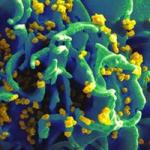
Research Topics
The ImmunoTechnology Section (ITS) is dedicated to understanding the roles and interactions of the individual components of the mature central immune system, with a particular eye toward the changes occurring during acute or chronic antigenic challenge. In general, we are looking for immunological correlates of protection (for vaccines) and correlates of pathogenesis (in disease).
Using high-content, high-throughput single-cell technologies (flow cytometric and transcriptomic), we are defining the functional repertoire of antigen-specific T and B cells and how these differ across vaccine regimens and infections. Using the nonhuman primate model, we can interrogate these cells from different tissues throughout the body, studying homeostasis, differentiation, and homing in vivo. We promote selected assays for use in clinical studies, in search of new assays to define protective immune responses.
We are also actively involved in the development and advancement of single-cell technology: instrumentation, reagents, analysis, and assays. We carry out a wide range of collaborations to bring our unique and advanced technology to other laboratories at the Vaccine Research Center (VRC), NIH, and around the world. Recently, we achieved the ability to do 30-color flow cytometry and are working toward our goal of 40 colors by 2016. We have begun to integrate this technology with single-cell transcriptomics to provide an unprecedented view of transcriptional, post-transcriptional, and post-translational regulation at the single-cell level.
Our projects include defining functional profiles of T-cell differentiation states, measuring viral and lymphocyte dynamics in SIV-infected nonhuman primates, understanding the role of antigenic heterogeneity of clonal HIV envelopes in resistance to vaccines, isolating novel and potent monoclonal antibodies to SIV and HIV, characterizing lymphocyte dynamics in healthy nonhuman primates, developing aerosolized vaccines to protect against TB, and defining the genetic bases for homeostatic mechanisms in humans.
For more information on research conducted by Dr. Roederer, visit the Flow Cytometry Core and Non-Human Primate Immunogenicity Core.
Biography
Dr. Roederer received his B.S. in chemistry in 1983 from Harvey Mudd College, Claremont, California, followed by his Ph.D. in biological sciences in 1988 from Carnegie Mellon, Pittsburgh, in the laboratory of Dr. Robert Murphy. He trained as a postdoctoral fellow and then as a research fellow at Stanford University from 1988 to 1999 in the laboratory of Dr. Leonard Herzenberg. Following this, he was adjunct associate professor, department of stomatology, University of California, San Francisco, until 2000, when he came to the VRC. He is a senior investigator and is chief of ITS, director of the Flow Cytometry Core, and director of the Nonhuman Primate Immunogenicity Core within the Laboratory of Immunology.
Selected Publications
- Dominguez MH, Chattopadhyay PK, Ma S, Lamoreaux L, McDavid A, Finak G, Gottardo R, Koup RA, Roederer M. Highly multiplexed quantitation of gene expression on single cells. J Immunol Methods. 2013;391(1-2):133-45.
- Lugli E, Dominguez MH, Gattinoni L, Chattopadhyay PK, Bolton DL, Song K, Klatt NR, Brenchley JM, Vaccari M, Gostick E, Price DA, Waldmann TA, Restifo NP, Franchini G, Roederer M. Superior T memory stem cell persistence supports long-lived T cell memory. J Clin Invest. 2013;123(2):594-9.
- Chattopadhyay PK, Gierahn TM, Roederer M, Love JC. Single-cell technologies for monitoring immune systems. Nat Immunol. 2014;15(2):128-35.
- Roederer M, Quaye L, Mangino M, Beddall MH, Mahnke Y, Chattopadhyay P, Tosi I, Napolitano L, Terranova Barberio M, Menni C, Villanova F, Di Meglio P, Spector TD, Nestle FO. The genetic architecture of the human immune system: a bioresource for autoimmunity and disease pathogenesis. Cell. 2015;161(2):387-403.
- Bolton DL, Song K, Wilson RL, Kozlowski PA, Tomaras GD, Keele BF, Lovingood RV, Rao S, Roederer M. Comparison of systemic and mucosal vaccination: impact on intravenous and rectal SIV challenge. Mucosal Immunol. 2012;5(1):41-52.
Related Scientific Focus Areas
This page was last updated on Monday, January 12, 2026


